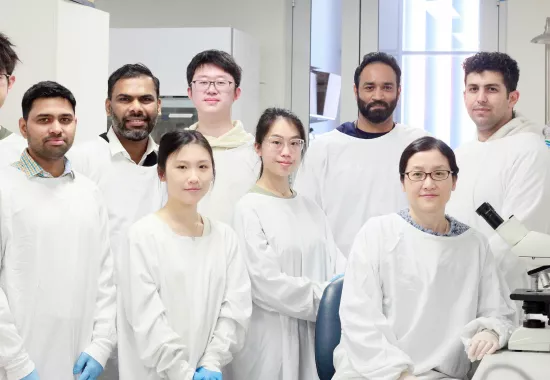While there has been a great deal of encouraging progress with many cancer treatments over the last decade, the prognosis for people with acute myeloid leukaemia remains dismal, with only 27 per cent of patients surviving more than five years after treatment.
Lead researcher Dr Jenny Wang said we have seen a sharp rise in the number of people with the deadly form of blood cancer in recent years and the trend is set to continue.
There are now more than 135,000 people in Australia living with blood cancers, with 16 people losing their life to this disease every day.
Dr Wang said blood cancers are particularly aggressive forms of cancer and very challenging to treat.
“The majority of them are resistant to current chemotherapy treatments which means many people experience a relapse of their blood cancer. If even one cancer stem cell survives after treatment, the cancer can regenerate and come back,” she said.
“Sadly, over 80 per cent of people will experience a relapse with their blood cancer.”
The future for blood cancer treatment is expected to be stem cell-based treatment and Dr Wang’s team has made significant progress over the last 10 years broadening our understanding of the biology of the stem cells driving blood cancers.
Her Cancer and Stem Cell Laboratory team is now using that knowledge to progress the development of an effective, stem cell-targeted cancer treatment.
Dr Wang said leukaemia stem cells have their own protective mechanisms that make them resistant to anticancer drugs.
“Our new treatment approach however, works by disrupting the ability of the leukaemia stem cells to self-renew. Specifically, it destroys the unique protective antioxidant mechanism of malignant stem cells.
“Antioxidants have long been considered a type of healthy compound, due to their many benefits such as anti-aging and anti-inflammatory. However, we found that the antioxidant in cancer protects malignant stem cells against cancer therapy, leading to drug resistance and disease relapse.
“Reducing the antioxidant level makes malignant stem cells sensitive to standard chemotherapy and effectively kills these cells.
“Encouragingly, it’s anticipated this treatment approach could be applied to other cancers as well, improving outcomes for a much larger range of cancers.”
Dr Wang’s research has been published in the top hematology journal, Blood, with international leaders from Columbia University and Temple University. To view the publication click here:
